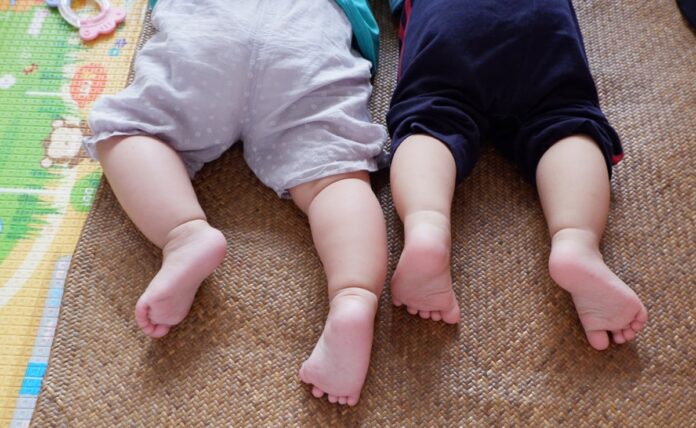Russia has joined China and Japan in the quest to boost plummeting birthrates, introducing its own set of measures to increase population growth. In a bid to encourage young women to start families, a Russian region is offering a substantial incentive of 100,000 rubles (approximately Rs 81,000) to female students under 25 who give birth to a healthy baby, reported The Moscow Times. To qualify for this payment, applicants must be full-time students at a local university or college, under 25 years old, and residents of Karelia.
The law clearly states that the bonus is not available to mothers who give birth to a stillborn child. However, it remains unclear whether the payment would be revoked if the child were to pass away due to Sudden Infant Death Syndrome. Further, the policy does not specify whether young mothers who give birth to children with a disability are eligible for the payment, nor does it state if they will receive additional bonus payments to help with the costs of child care and postpartum recovery.
Russia’s birth rate has reached a historic low, with only 599,600 children born in the first half of 2024. This marks the lowest number of births in 25 years, and 16,000 fewer than in the same period in 2023. Kremlin spokesperson Dmitry Peskov described the situation as “catastrophic for the future of the nation” in July 2024, as per Fortune.
Other regions in Russia are also implementing similar incentives to encourage young women to have children. Tomsk, a city in central Russia, has a similar program in place. In total, at least 11 regional governments in Russia are reportedly offering financial incentives to female students who give birth.
The national government has also increased its maternity payments. Starting in 2025, first-time mothers will receive 677,000 rubles (approximately $6,150), a notable increase from the previous year’s amount of 630,400 rubles. Additionally, mothers having their second child will be eligible for 894,000 rubles (around $8,130), up from 833,000 rubles in 2024.
Notably, Russia’s population is declining due to low birth rates, high adult mortality, and emigration. The situation has been exacerbated by the war in Ukraine, which has resulted in high casualties and a mass exodus of citizens abroad.
The Russian government has been trying to boost birth rates through various measures, including cash incentives and housing support. However, these efforts have had limited success, and the birth rate remains low. The government’s policies have also been criticised for being shortsighted and failing to address the underlying issues driving the demographic crisis.




